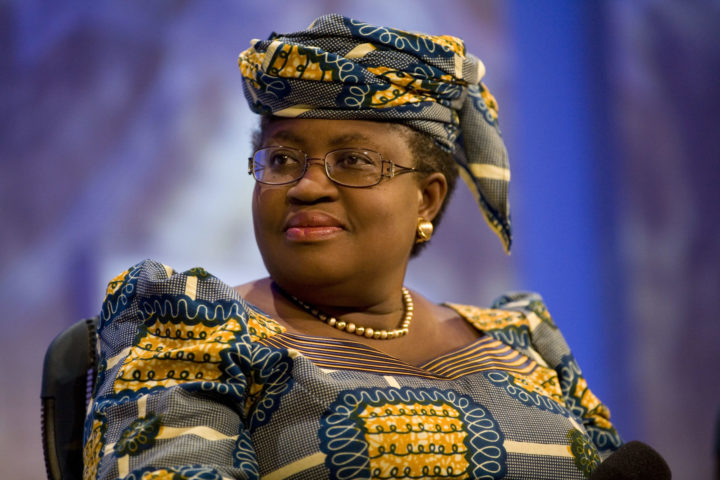By Kester Kenn Klomegah
The African Union (AU) and Economic Community of West African States (ECOWAS) have thrown their unflinching support for Nigeria’s Dr. Ngozi Okonjo-Iweala, a candidate contesting for the top position at the World Trade Organization (WTO). This backing implies that Africa is strongly behind her, and further shows a popular acknowledgement among top diplomats and politicians that Africa may be in line for the Director-General’s post at WTO.
This June, WTO kicked off the process for selecting a new Director-General, after its current Brazilian Chief, Roberto Azevedo, decided to leave his job a year early, at the end of August. The surprise announcement of his early departure has left everyone scrambling. His successor will have, as required, to steer reforms and negotiations in the face of rising protectionism, a deep recession caused by the COVID-19 pandemic and growing trade tensions, notably between the United States and China.
Biographical records, however, show that Okonjo-Iweala developed a 25-year career at the World Bank in Washington. She then served two terms as Finance Minister of the Federal Republic of Nigeria (2003-2006 and 2011-2015) under the political leadership of President Olusengun Obasanjo and President Goodluck Jonathan respectively. Born into a royal family in Delta State, her father Professor Chukwuka Okonjo became the Eze (King) from the Obahai Royal Family of Ogwashi-Ukwu.
With high aspirations, Okonjo-Iweala studied at prestigious Harvard University, graduating magna cum laude with an AB in Economics in 1976. In 1981, she earned her PhD in regional Economics and Development from the Massachusetts Institute of Technology (MIT) with a thesis titled Credit policy, rural financial markets, and Nigeria’s agricultural development. She received an International Fellowship from the American Association of University Women (AAUW) that supported her doctoral studies.
With a solid education and broad experience, a number of African presidents, such as Niger’s President and ECOWAS Chairman Mahamadou Issoufou has strongly urged non-African countries to get behind and endorse Africa’s candidature, referring to Nigeria’s Dr. Ngozi Okonjo-Iweala. In addition, the Nigeria’s Foreign Ministry explained in a statement that ECOWAS had thrown their support behind her candidacy due to “her long years of managerial experience at the top echelons of multilateral institutions.”
There is broad support for an African candidate and a woman, since neither have headed the Geneva-based body in the past, according to sources following the process. Supporters of Okonjo-Iweala, a former minister and World Bank managing director, vaunt her negotiating skills, including clinching a multi-billion dollar debt relief package for Nigeria.
The WTO is the only global international organization dealing with the rules of trade between nations. The goal is to ensure that trade flows as smoothly, predictably and freely as possible. It currently has 164 members, monitoring each other’s practices and regulations against a set of standard trading rules in order to improve transparency and avoid protectionism.
In addition, WTO works to build the trading capacity of developing and least-developed countries, helping them integrate and benefit from the multilateral trading system. This is an essential part of the work. The trading system has be inclusive, with the benefits of trade reaching as many as possible around the world, particularly in the poorest countries.
The WTO provides its members with a tried and tested system of shared rules and principles to support economic cooperation and thereby boost growth, development and job creation around the world. It provides a forum for members to raise, discuss and potentially solve the complex problems that they face. There is huge value in the system of World Trade Organization.






